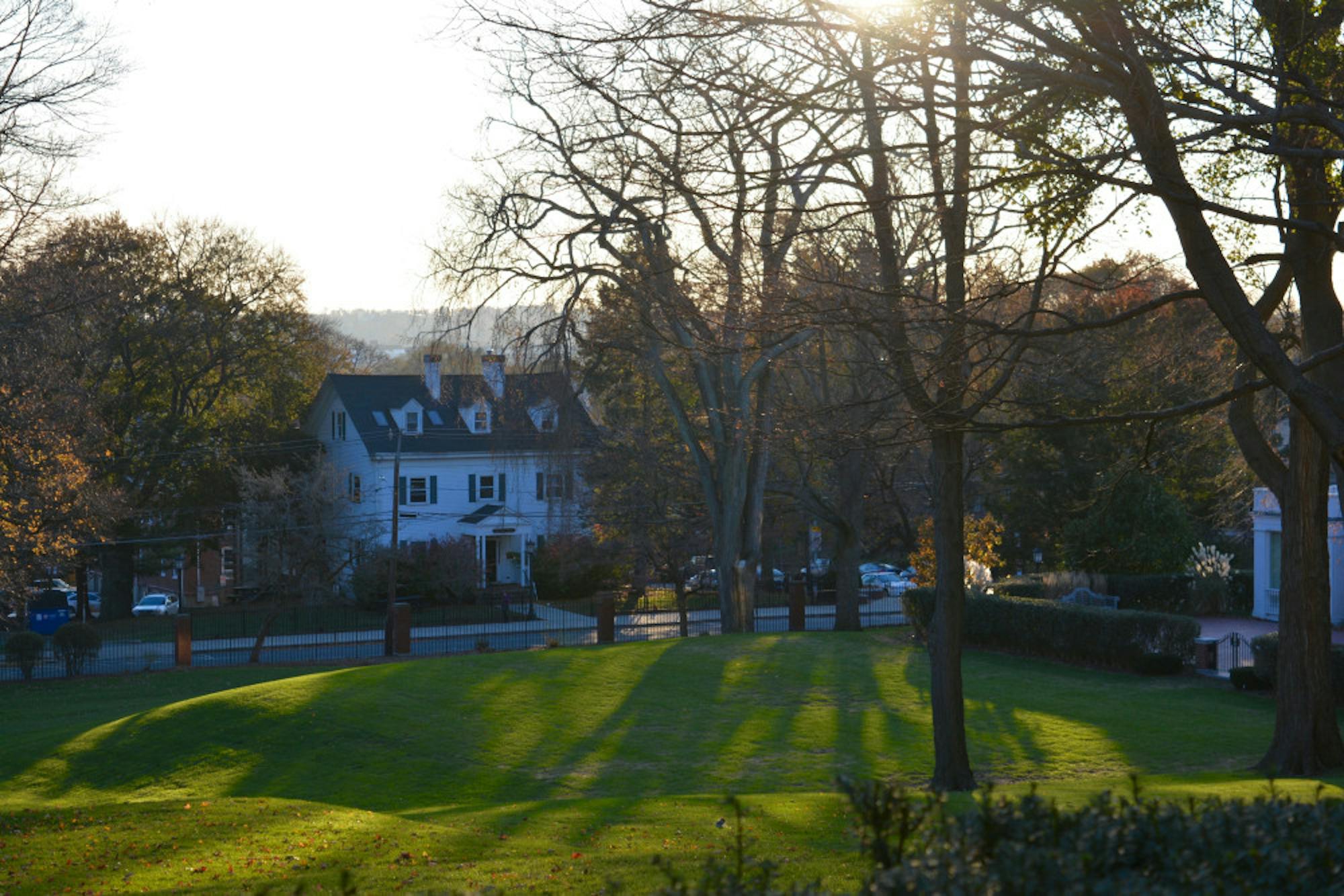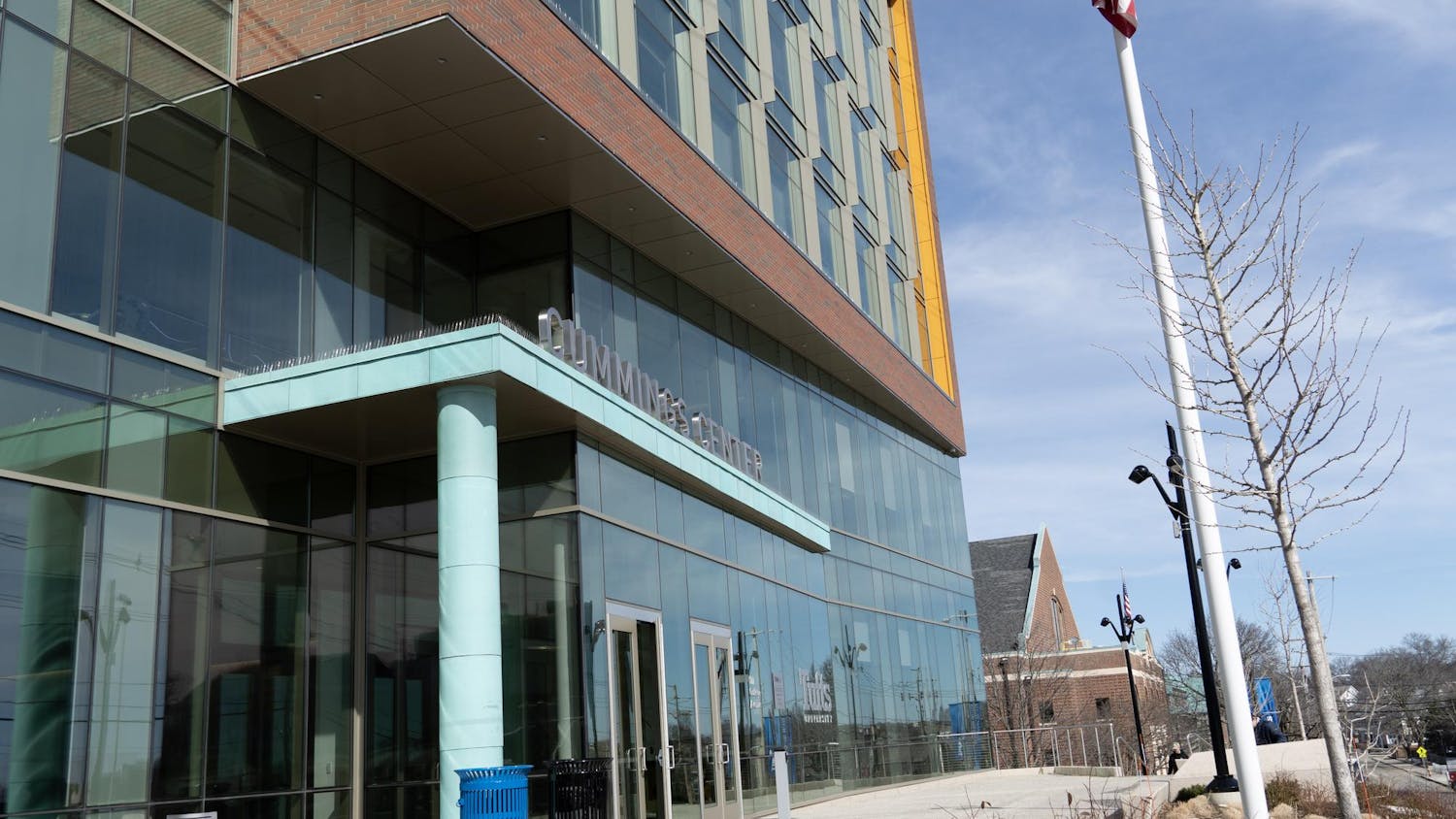The Tufts University Social Collective is hosting over 100 in-person and virtual events for Tufts undergraduates this week as part of its "Spring Break Staycation 2021" initiative.The idea was initially proposed by members of the Tufts Community Union Senate, and it is a collaborative effort between TUSC and TCU Senate as well as about a dozen other on-campus organizations.
TCU President Sarah Wiener and TCU Senate Services Committee Chair Avani Kabra came to TUSC with the idea, and both groups also worked with John Wescott, the associate director of campus life.
There is a wide variety of programming planned for the week, including kickboxing, yoga and zumba classes, grab-n-go events, cooking classes and mindfulness sessions.
The events are taking place during the week leading up to Tufts' spring break, which has been truncated into a single day on Friday, March 26. Kabra, a sophomore, spoke about how she hopes the "Staycation” will benefit students who are missing the typical week-long break.
“Of course, this Staycation cannot completely replace the relaxation and decompression that Spring Break typically provides,” Kabra wrote in an email to the Daily. “However, in lieu of that, we wanted to create a time for students to value their mental health and engage in activities for the purpose of having fun rather than solely working on their schoolwork.”
Wiener, a senior, noted that the original impetus for the planning of this week’s events was concern over not having more than one weekday off at a time for the entire spring semester. She also cited asurvey that TCU Senate conducted at the end of the fall 2020 semester.
“The last survey Senate conducted also noted the absence of community, destressing and de-compressing spaces, and spaces to process loneliness and what it is like to be a student in the pandemic,” Wiener wrote in an email to the Daily. "The idea for a week to meet these needs (partially, of course one week is not an 'answer' for mental health challenges) came from an initial call to ask professors not to have midterms the week that would have been Spring Break to give students some time to catch up in coursework and catch their breath in the semester."
Although neither TCU Senate nor the university can actually dictate how professors should organize their classes, Wiener said she and other students brought this idea to faculty with the support of senior administrators.
"I think some professors chose to observe this suggestion by not having midterms the week that would have been spring break, and many did not for various reasons," Wiener said.
Sophomore Sean Lim, traditions co-coordinator for TUSC, spoke to some difficulties of organizing these events in compliance with COVID-19 health and safety guidelines.
“For staycation we weren't super certain when we first started brainstorming events whether we could do any of the in-person things,” Lim said. “It's kind of recent where they relaxed a lot of the COVID restrictions around campus … that opened up a lot of options."
Lim explained how this has impacted TUSC's work.
“It's really forced us to be really creative with the things that we do have, like how do we continue to engage people without just doing grab-and-go events because they can be a bit static and sort of passive,” Lim said.
With the ability to host in-person events, the TUSC coordinators faced the logistical challenges that come with planning in-person events while abiding by the university's COVID-19 guidelines.
Amber Asumda, another TUSC traditions co-coordinator, noted that the group sizes for in-person events are all limited to 10 people, including instructors when necessary, and that for activities in which students will be touching objects, there are rigorous health and safety procedures in place.
“[We're] making sure to upkeep with cleaning, make sure everyone's doing their part in terms of wearing masks and just staying six feet apart from each other,” Asumda, a junior, said.
Deborah Donahue-Keegan, a professor in the Department of Education and the associate director of the Tisch College Initiative on Social-Emotional Learning and Civic Engagement, has been part of the programming coordination.
"I just felt so strongly about this, both in my role at Tisch College ... but [also] just as an educator and just as I listen to students, and can sense the stress," Donahue-Keegan said. "I was just fully in support."
Donahue-Keegan explained the focus of the reflection and discussion sessions, emphasizing that they are meant to be positive and encouraging.
“There are a lot of tensions, there's a lot that students are dealing with, and so we want this to focus on what is going to fill your well … on self compassion, and not seeing that as selfish," Donahue-Keegan said.
The Monday, Wednesday and Thursday sessions are hosted by the Jonathan M. Tisch College of Civic Life, while Tuesday's session is hosted by the University Chaplaincy and Tufts Hillel.
Kabra noted that these groups were crucial to organizing the week's events.
“To accommodate all of these events and make sure as many people could attend as possible, the number of events grew, and we are so grateful for all departments and administrators who have been integral in providing the resources to make this vision happen,” Kabra said.






